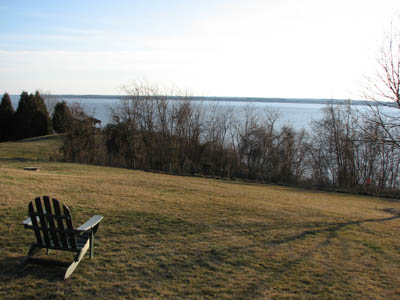Fri 29 Aug 2008
Interviewed on Meet the Press August 24, Speaker Pelosi was asked when human life begins. She said the following (my emphasis):
“I would say that as an ardent, practicing Catholic, this is an issue that I have studied for a long time. And what I know is over the centuries, the doctors of the church have not been able to make that definition. . . St. Augustine said at three months. We don’t know. The point is, is that it shouldn’t have an impact on the woman’s right to choose.”
Many Catholic leaders have released statements that reflect true Catholic beliefs and teachings. An excerpt from a statement by Archishop Chaput and Bishop Conley of Denver (my emphasis):
Ardent, practicing Catholics will quickly learn from the historical record that from apostolic times, the Christian tradition overwhelmingly held that abortion was grievously evil. In the absence of modern medical knowledge, some of the Early Fathers held that abortion was homicide; others that it was tantamount to homicide; and various scholars theorized about when and how the unborn child might be animated or “ensouled.” But none diminished the unique evil of abortion as an attack on life itself, and the early Church closely associated abortion with infanticide. In short, from the beginning, the believing Christian community held that abortion was always, gravely wrong.
Of course, we now know with biological certainty exactly when human life begins. Thus, today’s religious alibis for abortion and a so-called “right to choose” are nothing more than that – alibis that break radically with historic Christian and Catholic belief.
Abortion kills an unborn, developing human life. It is always gravely evil, and so are the evasions employed to justify it. Catholics who make excuses for it – whether they’re famous or not – fool only themselves and abuse the fidelity of those Catholics who do sincerely seek to follow the Gospel and live their Catholic faith.
And this is not just a Catholic teaching. The Bishops above also quote the Lutheran pastor, Dietrich Bonhoeffer:
“Destruction of the embryo in the mother’s womb is a violation of the right to live which God has bestowed on this nascent life. To raise the question whether we are here concerned already with a human being or not is merely to confuse the issue. The simple fact is that God certainly intended to create a human being and that this nascent human being has been deliberately deprived of his life. And that is nothing but murder.”
Also Cardinal Justin F. Rigali and Bishop William E. Lori (chairman of the U.S. Bishops’ Committee on Doctrine) state:
In the course of a “Meet the Press†interview on abortion and other public issues on August 24, House Speaker Nancy Pelosi misrepresented the history and nature of the authentic teaching of the Catholic Church against abortion.
In fact, the Catechism of the Catholic Church teaches, “Since the first century the Church has affirmed the moral evil of every procured abortion. This teaching has not changed and remains unchangeable. Direct abortion, that is to say, abortion willed either as an end or a means, is gravely contrary to the moral law.” (No. 2271)
In the Middle Ages, uninformed and inadequate theories about embryology led some theologians to speculate that specifically human life capable of receiving an immortal soul may not exist until a few weeks into pregnancy. While in canon law these theories led to a distinction in penalties between very early and later abortions, the Church’s moral teaching never justified or permitted abortion at any stage of development.
These mistaken biological theories became obsolete over 150 years ago when scientists discovered that a new human individual comes into being from the union of sperm and egg at fertilization. In keeping with this modern understanding, the Church teaches that from the time of conception (fertilization), each member of the human species must be given the full respect due to a human person, beginning with respect for the fundamental right to life.
More statements of Catholic leaders are on the EWTN site.
Finally, I like the moral counsel Father Mitch Pacwa gave to Pelosi:
“If you are ignorant and you don’t know [when life begins], then you go on the side of safety and protecting rights. You don’t bomb a city where there might be a lot of civilians. You don’t do that. You say, ‘Well, I’m not sure.’ Well, then be on the side of safety. Protect the lives of the innocent, the non-combatants.
“Same with the unborn children. You must also go on the side of your ignorance to say then, “If I don’t know, then I’ll protect all the more. I don’t want to act while I’m ignorant.”





